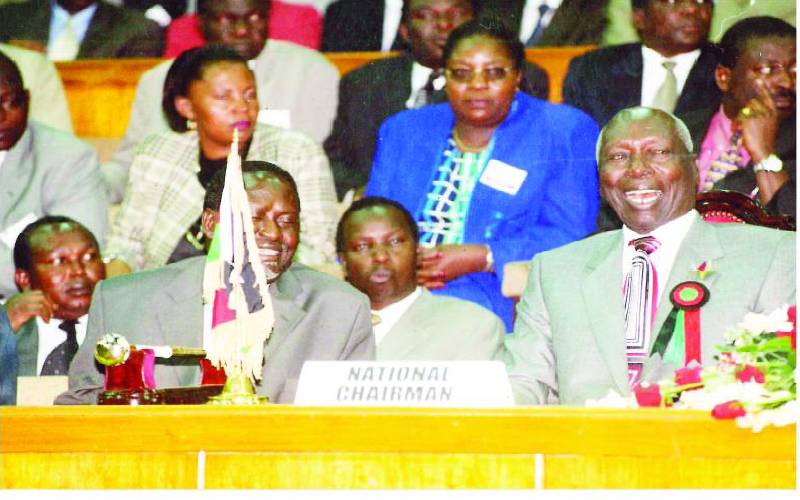×
The Standard e-Paper
Fearless, Trusted News

ODM leader Raila Odinga’s ‘reformist’ team ahead of 2002 General Election wanted former President Moi to extend his term by six months to allow completion of the constitutional review agenda.
In revelations triggered by the memoir of former Vice President Musalia Mudavadi released earlier this week, former Head of Civil Service Sally Kosgei told Sunday Standard that Raila broached the extension idea to Mzee Moi before they fell out.